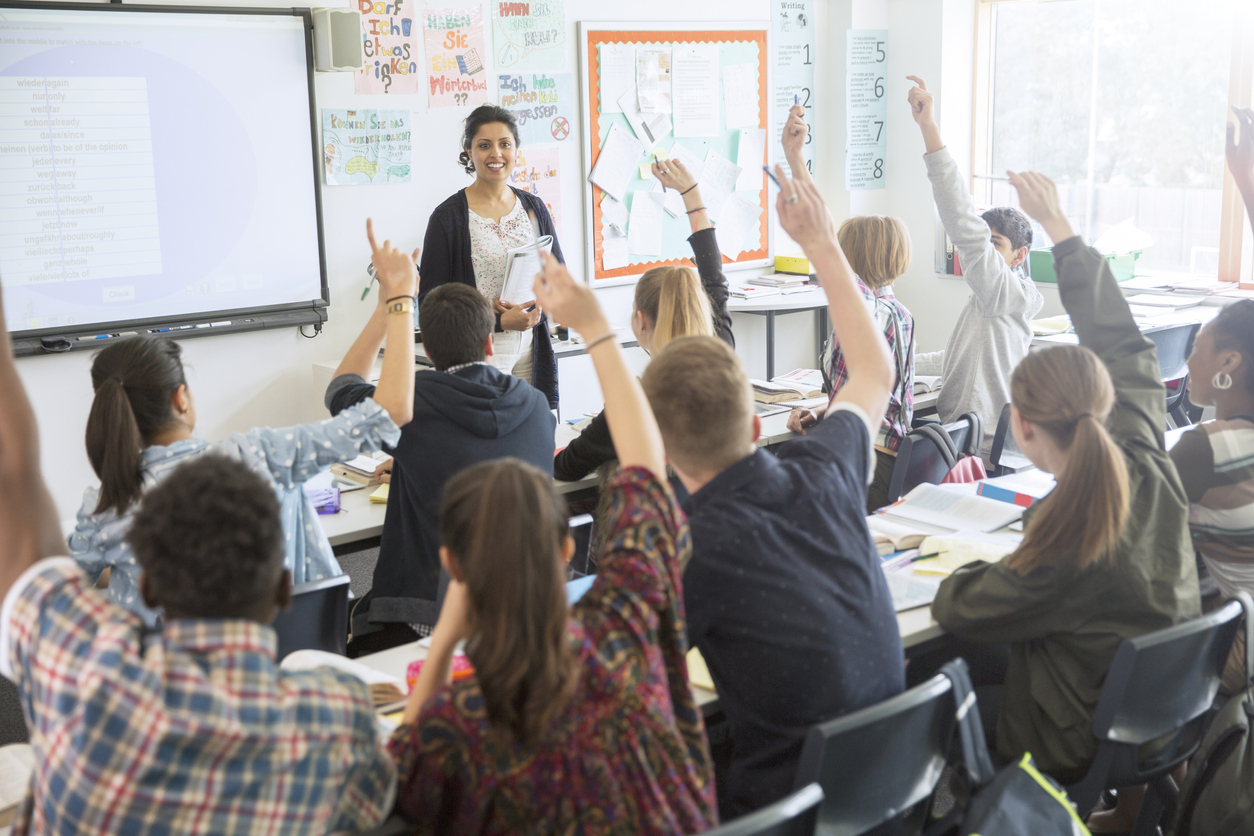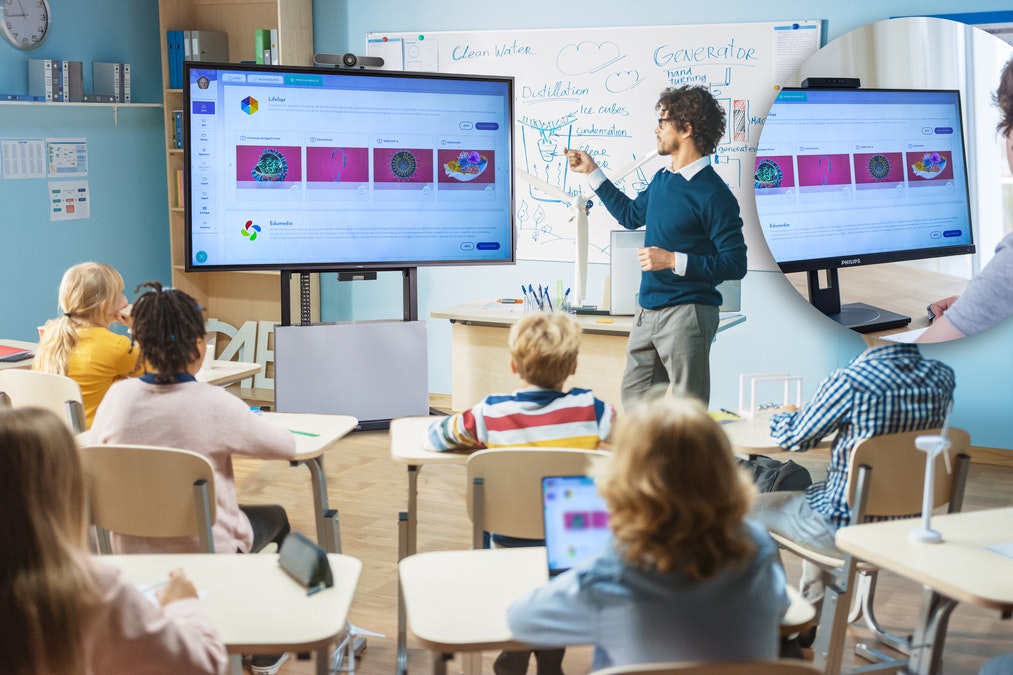Tailored Primary Science Tuition Singapore for Your Child’s Success
Tailored Primary Science Tuition Singapore for Your Child’s Success
Blog Article
Discovering the Different Teaching Techniques in Primary Scientific Research Education Today
Inquiry-based discovering, hands-on experiments, and the assimilation of modern technology are redefining just how educators engage young minds. Additionally, collective techniques and set apart instruction are being employed to cater to the diverse demands of trainees, enhancing both engagement and understanding.
Inquiry-Based Knowing
Inquiry-Based Understanding (IBL) is a pedagogical strategy that encourages trainees to discover clinical principles through doubting, examination, and hands-on trial and error. This technique emphasizes the role of students as active individuals in their understanding, advertising critical reasoning and problem-solving abilities. By involving with real-world concerns, students come to be interested and inspired, which boosts their understanding of scientific principles.
In IBL, instructors serve as facilitators, guiding pupils as they navigate their questions instead of delivering details directly. This student-centered approach permits differentiation, accommodating numerous learning rates and styles. Pupils create skills in creating hypotheses, designing experiments, and assessing data, which are crucial for clinical literacy.
Furthermore, IBL fosters cooperation among pupils, motivating them to share concepts and findings. This collective questions promotes social abilities and a sense of neighborhood within the classroom. Moreover, the process of query urges durability, as pupils find out to welcome failure as a tipping rock toward understanding.
Hands-On Experiments
Hands-on experiments are a crucial component of efficient scientific research education, complementing the principles of inquiry-based understanding. These experiments allow trainees to involve directly with scientific principles, fostering a deeper understanding with experiential discovering. By adjusting materials and observing outcomes, young learners can comprehend abstract concepts in tangible ways.
Such activities promote important reasoning and analytic abilities, as students hypothesize outcomes, conduct experiments, and examine outcomes. This procedure encourages them to ask concerns, improve their understanding, and create a clinical attitude. In addition, hands-on experiments can be customized to varied understanding designs, making certain that all pupils have the possibility to involve meaningfully with the web content.
Additionally, hands-on experiments commonly urge partnership amongst peers, advertising team effort and interaction skills. Operating in teams enables trainees to share ideas, review findings, and discover from each other, which boosts their total instructional experience.
Including hands-on experiments right into the main science curriculum not only enriches the learning setting however likewise cultivates a long-lasting rate of interest in science. By actively getting involved in their education and learning, trainees are most likely to develop an interest for scientific inquiry that expands beyond the classroom.

Innovation Integration
Integrating innovation right into key scientific research education has become progressively crucial in fostering student engagement and enhancing discovering outcomes. Making use of digital tools, such as interactive simulations, virtual labs, and academic software program, gives pupils with possibilities to discover clinical principles in cutting-edge means. These sources assist in a deeper understanding of complicated topics by allowing students to visualize and manipulate variables that would certainly be impractical in a traditional class setup.
Furthermore, technology combination urges individualized finding out experiences. Students can advance at their very own rate, taking another look at challenging concepts through multimedia resources, which accommodate various learning styles. This adaptability not just supports individual growth but also grows a feeling of freedom in students.
Additionally, innovation works as a bridge to real-world science, linking trainees with present research study and specialist payments. Access to on-line databases and clinical journals broadens pupils' point of views on clinical query and cultivates essential click here for info believing skills.
Collaborative Discovering
Collaborative understanding plays a crucial role in key science education by cultivating synergy and interaction skills amongst students. This technique encourages students to go to my blog interact, share expertise, and engage in analytic, which enhances their understanding of scientific principles. By participating in team tasks, students discover to express their ideas, pay attention to varied perspectives, and discuss solutions, all of which are crucial skills in both academic and real-world contexts.

Study indicates that collective understanding can cause increased inspiration and involvement in science subjects, as pupils locate enjoyment in shared experiences (primary science tuition Singapore). In addition, this approach prepares trainees for future collective undertakings, equipping them with the skills needed for reliable teamwork in helpful resources higher education and expert settings. Ultimately, embracing collective discovering in key science education can substantially improve the understanding experience and promote a deeper understanding of scientific inquiry
Set Apart Instruction

Set apart instruction can materialize in numerous ways, such as varying the web content, processes, or products of discovering. For example, instructors might make use of tiered assignments that supply differing levels of complexity, enabling pupils to function at their respective preparedness degrees. Furthermore, versatile organizing approaches can facilitate collaboration among trainees with different capabilities, cultivating peer understanding.
Assessment plays an important duty in this strategy, as it informs instruction and helps educators understand each trainee's distinct requirements. Formative evaluations, such as monitorings and quizzes, can direct instructors in changing their methods to improve discovering results. primary science tuition Singapore. Inevitably, by applying differentiated direction in primary science education, educators can cultivate a much more fair and reliable understanding environment, encouraging all students to reach their full capacity in comprehending scientific phenomena
Final Thought
In summary, the diverse teaching methods in main science education, including inquiry-based learning, hands-on experiments, modern technology integration, joint discovering, and distinguished direction, jointly add to a more reliable discovering environment. These approaches advertise vital thinking, analytical skills, and a much deeper comprehension of clinical ideas. By implementing these approaches, educators can create encouraging and appealing classrooms that resolve the varied demands of trainees, ultimately cultivating a lifelong interest in scientific research and enhancing scholastic success.
Inquiry-Based Knowing (IBL) is an instructional approach that motivates students to check out clinical concepts with wondering about, investigation, and hands-on trial and error.Collaborative discovering plays an essential function in key science education and learning by cultivating teamwork and communication skills among trainees.Research suggests that joint knowing can lead to raised motivation and involvement in science topics, as students discover enjoyment in shared experiences.In promoting a comprehensive learning atmosphere, distinguished guideline emerges as a key approach to fit the varied demands and capacities of trainees in primary scientific research education and learning. Inevitably, by carrying out distinguished direction in key science education and learning, teachers can grow a much more effective and equitable learning environment, empowering all trainees to reach their full capacity in recognizing clinical sensations.
Report this page